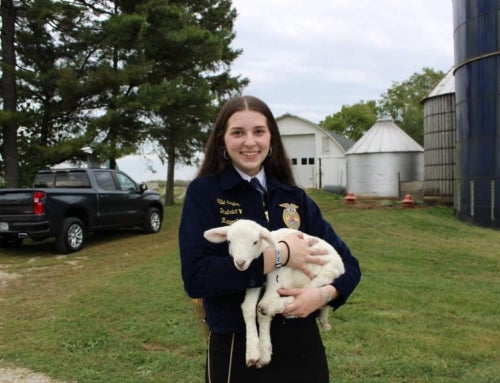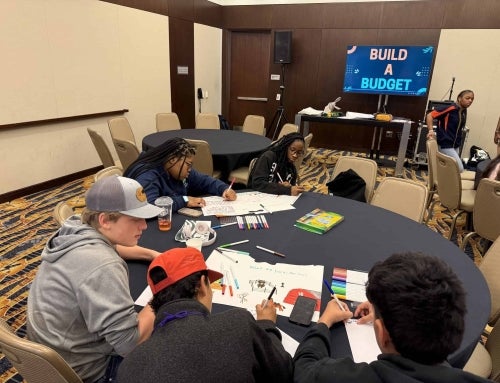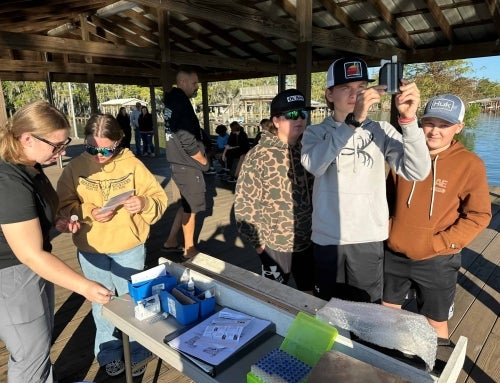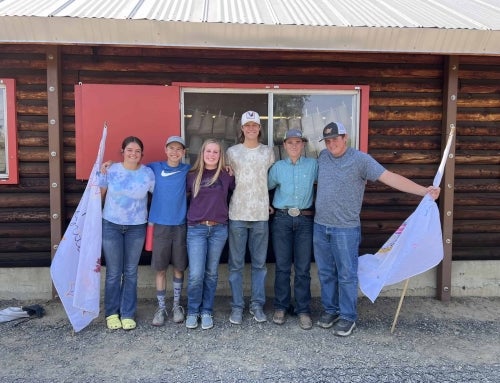
My name is Kalem Hall, and this article highlights how crucial it is to have an administration that supports you.
The summer before senior year, I made a simple choice and signed up for an agriculture and natural resources class. I wasn’t sure if a career in agriculture was for me, but I knew I needed to explore what the path could offer and the impact I could make in the field. But most importantly, this course was key to qualifying to be an FFA member.
Then, my journey hit a roadblock. I was told I was “ineligible” with no explanation — just a dead end where there should’ve been an open door.
In FFA, we’re taught to break boundaries, not just till soil. So, I asked the questions that mattered to ensure my future — and the future of all students — was a top priority. I read the entire school district handbook, consulted state FFA specialists and reviewed every guideline. The conclusion? There was no policy or reason to deny me. I hadn’t been told “no” for a reason — I had been told “no” without one.
After addressing their oversight and pointing out the lack of proper rules in writing to deny me from the course, it became clear their decision lacked the necessary support. Once I emphasized this, they recognized the issue, and I was ultimately given the green light to enroll. Let me be clear: That class changed everything.
The Impact of a “Yes”
Inside that classroom, I didn’t just learn about agriculture — I discovered who I was meant to become. Through this class, I developed critical thinking, communication and interpersonal skills. Through FFA, I learned what it means to lead, serve and to believe in something bigger than myself. Together, they shaped me into a passionate individual ready to take on anything.
According to Article XII of the National FFA Constitution, “School superintendents, principals, local administrators and chapter advisors are expected to support the FFA organization, its activities, and its membership.”
That word — expected — is not accidental. It doesn’t say support is “optional” or “when it fits their schedule.” It says expected. Although the FFA Constitution is well written, the problem doesn’t just lie on these leaders mentioned; it could be the school board, career and technical education directors or any powers that be.
Should This be the Standard?
If FFA is one of the largest youth leadership organizations in our country, why is support missing in some schools? Why do we, as students, have to fight to get a seat at the table?
We don’t expect a football team to win without a field or a baseball team to play without gear. Why is it expected of our FFA programs to thrive without the support and resources we need?
It shouldn’t be about favoritism — it’s about fairness. Agricultural education covers more than planting crops or raising animals. By supporting FFA, administrators aren’t just supporting a student’s hobby; they’re fostering the next generation of leaders and change-makers. It could simply be a liked post, simple acknowledgement or even a “great job!”
This isn’t an attack; it’s a reminder. It takes power in people to stand up to the people in power. Students shouldn’t have to become policy experts to access opportunities. Sometimes all it takes is one supportive “yes” to change the course of a student’s future.
My story isn’t necessarily unique, but it could have ended differently. And that’s what matters.
To every teacher and FFA advisor facing these roadblocks, it’s beyond frustrating to watch eager students be held back by those who have the power to help them grow, but choose not to.
Administrators, are you doing everything in your power to support your students’ potential? Leadership begins with support. The real problem isn’t when a student says no to an opportunity — it’s when they’re never given the chance to say “yes.”











